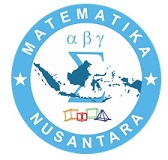PRODUK INTELEKTUAL KAMPUS BOARD GAME LABIRIN MATEMATIKA: RAGAM MODEL DAN POTENSI PENGGUNANYA
Abstract
Universitas Sultan Ageng Tirtayasa has a campus intellectual product based on a patent called Labirin; the mathematical board game. The availability of these products enables the development of knowledge-based economy as Campus Intellectual Product. The availability of printed and digital products of the game will enable the commercialization for use by many people. The potential product range and its users are described in this article.
Keywords: Patent, Mathematical board game, Intellectual product, Users, Schools
Full Text:
PDFReferences
Bayeck, R. Y. (2020). Examining Board Gameplay and Learning: A Multidisciplinary Review of Recent Research. Simulation & Gaming, 51(4), 411–431.
Cheung, S., K., & McBride, C. (2016). Effectiveness of Parent–Child Number Board Game Playing in Promoting Chinese Kindergarteners’ Numeracy Skills and Mathematics Interest. Early Education and Development. 28. 1-18.
Chou, M. (2017). Board Games Play Matters: A Rethinking on Children's Aesthetic Experience and Interpersonal Understanding. Eurasia Journal of Mathematics, Science and Technology Education, 13, 2405-2421.
Eutsler, L. (2021). Pandemic induced remote learning increases need for mobile game-based learning to engage learners. Education Tech Research Dev 69, 185–188, https://doi.org/10.1007/s11423-020-09861-7
Fathurrohman, M., Nindiasari, H., & Rahayu, I. (2022). A conventional and digital mathematical board game design and development for use by students in learning arithmetic. Journal on Mathematics Education, 13(4), 631-660.
Fontana, M., T. (2020). Gamification of ChemDraw during the COVID-19 Pandemic: Investigating How a Serious, Educational-Game Tournament (Molecule Madness) Impacts Student Wellness and Organic Chemistry Skills while Distance Learning. Journal of Chemical Education, Volume 97(9)
Fisher, K., Hirsh-Pasek, K., and Golinkoff, R., M. (2012). Fostering mathematical thinking through playful learning. Contemporary Debates in Childhood Education and Development (1st edition). Routledge
Fouze, A. Q., & Amit, M. (2018). Development of Mathematical Thinking through Integration of Ethnomathematic Folklore Game in Math Instruction. Eurasia Journal of Mathematics, Science and Technology Education, 14(2), 617-630.
Gao, F., Li, L. & Sun, Y. (2020). A systematic review of mobile game-based learning in STEM education. Education Tech Research Dev 68, 1791–1827,
Hendrix, N. M., Hojnoski, R. L., & Missall, K. N. (2020). Promoting Numeracy Skills Through Board Game Play. Young Exceptional Children, 23(2), 100–111.
Ioannou, A. (2021). Mobile game-based learning in the era of “shifting to digital”. Education Tech Research Dev 69, 173–175,
Lazeem, S., and Jad, H., A. (2017). We Play We Learn: Exploring the Value of Digital Educational Games in Rural Egypt. Proceedings of the 2017 CHI Conference on Human Factors in Computing Systems v
Libertus, M. E., Liu, A., Pikul, O., Jacques, T., Cardoso-Leite, P., Halberda, J., & Bavelier, D. (2017). The Impact of Action Video Game Training on Mathematical Abilities in Adults. AERA Open.
Lin, Yen-Ting, and Ching-Te Cheng. (2022). Effects of Technology-Enhanced Board Game in Primary Mathematics Education on Students’ Learning Performance". Applied Sciences 12(22), 11356.
Liu, HC., Chen, HR., Yu, SC., Shih, YT. (2022). Effect of Learning Computational Thinking Using Board Games in Different Learning Styles on Programming Learning. In: Huang, YM., Cheng, SC., Barroso, J., Sandnes, F.E. (eds) Innovative Technologies and Learning. ICITL 2022. Lecture Notes in Computer Science, vol 13449. Springer, Cham.
Nasrullah, & Zulkardi. (2011). Building counting by traditional game: A Mathematics Program for Young Children. Journal on Mathematics Education, 2(1), 41-54.
Ndukwe, I., G. (2014). Computerized Board Game: Dara. International Journal of Advanced Research in Computer Science, 5(7), 59-62
Nisiotis, L. (2021). Utilising mobile game based learning methods effectively to support education. Education Tech Research Dev 69, 177–180,
Park, J., and Lee, K. (2017). Using board games to improve mathematical creativity. International Journal of Knowledge and Learning, 12:1, 49-58.
Sardone, N. B. (2018). Attitudes Toward Game Adoption: Preservice Teachers Consider Game-Based Teaching and Learning. International Journal of Game-Based Learning, 8(3), 1-14.
Satsangi, R. & Bofferding, L. (2017), Improving the Numerical Knowledge of Children with Autism Spectrum Disorder: The Benefits of Linear Board Games. Journal of Research in Special Education Needs, 17: 218-226
Skillen, J., Berner, V., & Seitz-Stein, K. (2018). The rule counts! Acquisition of mathematical competencies with a number board game. The Journal of Educational Research, 111:5, 554-563,
Sulaksono, J., dan Zakaria, N. (2020). Peranan Digital Marketing Bagi Usaha Mukri, Kecil, dan Menengah (UMKM) Desa Tales Kabupaten Kediri. Generation Journal, 4(1), 41-47.
Sung, Y., W., and Song, S., H. (2013). Mathematical Elaboration Process of the Elementary Gifted Children's Board Game Re-creation in Group Project. School Mathematics 15(3), 619-632.
Udeh, I. J., Edeoga, B. O., & Okpube, N. M. (2019). Effects of algebraic board game on secondary school student’s interest and achievement in algebraic expressions. Academic Journal of Statistic and Mathematics, 5(7), 9–19
DOI: http://dx.doi.org/10.30870/jppm.v16i2.21665
Refbacks
- There are currently no refbacks.
Copyright (c) 2023 Jurnal Penelitian dan Pembelajaran Matematika
Ciptaan disebarluaskan di bawah Lisensi Creative Commons Atribusi 4.0 Internasional .
JPPM (Jurnal Penelitian dan Pembelajaran Matematika). Jurnal ini diterbitkan oleh Jurusan Pendidikan Matematika FKIP Universitas Sultan Ageng Tirtayasa (cetak) dan Jurnal Untirta (eprint).
Alamat Penerbit: Jl. Raya Ciwaru No 25 Kota Serang Banten, Jurusan Pendidikan Matematika, Fakultas Keguruan dan Ilmu Pendidikan, Universitas Sultan Ageng Tirtayasa, Kampus Ciwaru, Serang, Banten, Indonesia. Telepon / Faks: (0254) 280330 Ext 111, Email: [email protected] |Klik untuk mengakses: Jurnal Penelitian dan Pembelajaran Matematika


